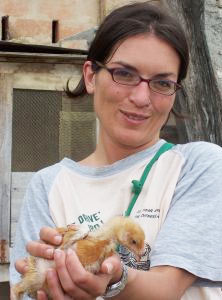
Recent News:
Black Voices
NWFA News
John Boyd: Black Farmers Settlement the First Step Toward Justice
A bill approving a $1.25 billion discrimination settlement for black farmers was passed by the House earlier this week and is headed for President Barack Obama's desk to be signed.
The settlement is the culmination of almost two decades of legal and political wrangling, not to mention heartbreak and despair for black farmers in the Deep South.
But for John Boyd, president of the National Black Farmers Association, the settlement is only the beginning. Hours after the settlement was passed, he began receiving calls from black farmers wanting to know their next steps and how the process will work.
"I've been swamped by calls and I'm still explaining to the farmers that it is a bit of an administrative process. But the farmers are not going to have to do it by themselves," Boyd said.
Now begins a process of reaching out to black farmers, many of whom are poorly educated in an effort to teach them about the settlement. The goal is to get as many black farmers as possible to have their cases heard by an arbitrator to avoid a repeat of what happened during the first settlement of this case when many found out about it too late or did not file in time.
"The president could sign the bill as early as next week so we are going to have to work with these farmers because with these cases there is a percentage of farmers not up on educational skills. We want them to understand and be able to explain what happened to them," Boyd said.
About 30,000 farmers have filed claims. Boyd said he wants to make sure everyone has their case heard by an independent arbitrator.
"My goal is to not leave anyone out. Now is the time for the farmers to reach out and say: 'This is what happened to me and I can tell my story," Boyd said.
For President Obama, this is a kept campaign promise that he can use to show African Americans how he has been working on their behalf.
"President Obama can say this was resolved on his watch. He made good on a campaign process. It behooves the administration to look at this as something that directly affects African Americans in the poorest counties in this country. Down in places like Mississippi these are poor communities and they need this money to help get their lives together."
Boyd said many women ran farms and others continued to farm after their husbands died.
"The women didn't get the attention that they deserved," Boyd said. "I watched my grandmother. I watched my mother work like a dog on the farm."
Boyd also will stop in Florence, S.C., next week and Atlanta next month.